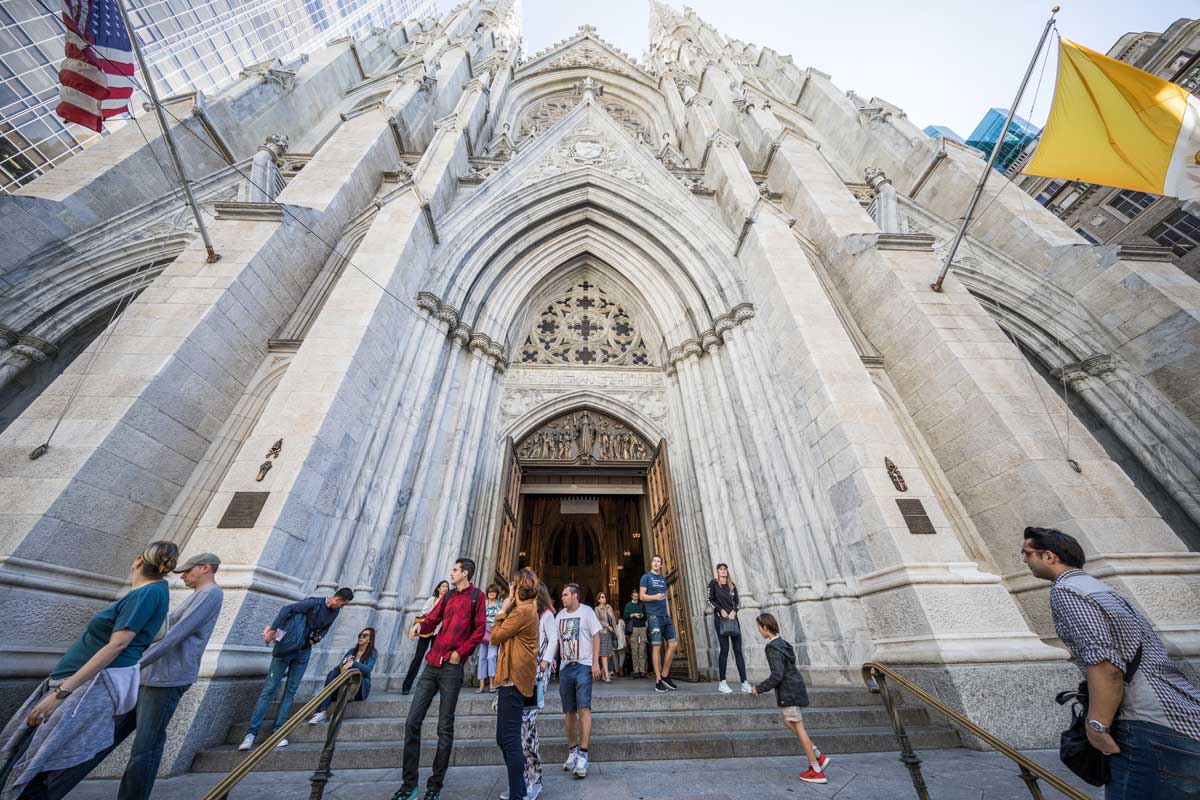View
Lest Ye Forget The Covenant
Mark R. Elliott asks, What Happened to the Ten Commandments?
What happened to the Ten Commandments?" asked my young grandson Valentino as we walked between buildings at our church one Sunday last year. He drew my attention to the bare spot in our church landscape where a heavy marker engraved with the Ten Commandments had rested for years. As I looked around, I saw that, indeed, Moses' moral code was missing, and I had no idea what could have happened to it.
Several Sundays later, our pastors confirmed from the pulpit that someone had dug up and spirited off our church's Ten Commandments. Many of us wondered what a thief would do with such heavyweight stolen property. One worshiper in a front pew speculated out loud, "sell it on e-Bay." But we were sensibly advised that the shipping cost for such a transaction would be prohibitive. Our pastors concluded with the suggestion that we pray that our thief would take to heart the eighth commandment, "Thou shalt not steal," and eventually return it.
Stolyarov's Lament
Our missing Ten Commandments brought back a number of recollections associated with my professional life as a teacher of Russian and East European history. One such memory was of an address I heard in the early 1990s by General Nikolai Stolyarov. He was the Soviet Air Force pilot who flew Mikhail Gorbachev back to Moscow from the Crimea after the failed Communist hardliner coup in August 1991. Gorbachev soon assigned Stolyarov to a top post in the KGB, entrusting him with the impossible task of reforming the Kremlin's entrenched engine of state repression.
In Praying with the KGB (Multnomah Press, 1992), Philip Yancey recounts how a group of Western church and mission leaders met with General Stolyarov in his KGB office and managed to say a prayer with him. The general accepted an invitation to visit the United States, and when he reached Chicago, I was given the privilege of introducing him to an overflow audience at Wheaton College, where I was then teaching. Stolyarov would later become a believer, but in 1992, he, like millions of his countrymen, was searching for a new direction and a new moral compass. I will never forget his words that night: "My country has forgotten the Ten Commandments, and now we are paying the price for it."
Sadly, Russia is still, twenty years later, paying the price in the form of endemic corruption. In the 2012 edition of its "Corruption Perception Index," Transparency International (TI) ranked Russia 133rd out of 176 states. The index, which is based on worldwide survey findings, put Russia on a par with Honduras, Iran, and Kazakhstan.
Tolerance for Theft
In 1993, two scholars, Samuel Kliger and Paul DeVries, published a study on the post-Soviet population's understanding of the Ten Commandments. After conducting over a thousand telephone and face-to-face interviews and focus-group discussions in the Moscow region, they reached a conclusion similar to General Stolyarov's, writing, "The savage struggle against religion and any religious ideas, ideals, and spirituality has led to an almost complete elimination in people's consciousness of any frame of moral reference."
Gorbachev's glasnost, allowing for greater self-expression, permitted wrenching lamentations over the Soviet Union's moral freefall. A short story by Viktor Astafyev in the May 1986 issue of the Moscow literary journal Our Contemporary, treated in very candid language this theme of abandoned morals:
What happened to us? Who hurled us into the depths of evil and misfortune, and why? Who extinguished the light of goodness in our soul? Who blew out the lamp of our conscience, toppled it into a dark, deep pit in which we are groping, trying to find the bottom? . . . [In the past] we lived with a light in our soul . . . so that we would not wander in the darkness, . . . scratch out each other's eyes, or break our neighbor's bones. . . . They stole it from us and did not give anything in return, giving rise to unbelief, an all-encompassing unbelief. . . . To whom should we pray? From whom should we ask for forgiveness?
subscription options
Order
Print/Online Subscription

Get six issues (one year) of Touchstone PLUS full online access including pdf downloads for only $39.95. That's only $3.34 per month!
Order
Online Only
Subscription

Get a one-year full-access subscription to the Touchstone online archives for only $19.95. That's only $1.66 per month!
bulk subscriptions
Order Touchstone subscriptions in bulk and save $10 per sub! Each subscription includes 6 issues of Touchstone plus full online access to touchstonemag.com—including archives, videos, and pdf downloads of recent issues for only $29.95 each! Great for churches or study groups.
Transactions will be processed on a secure server.
more on Christianity from the online archives
more from the online archives

23.6—November/December 2010
Darwin, Design & Thomas Aquinas
The Mythical Conflict Between Thomism & Intelligent Design by Logan Paul Gage
calling all readers
Please Donate
"There are magazines worth reading but few worth saving . . . Touchstone is just such a magazine."
—Alice von Hildebrand
"Here we do not concede one square millimeter of territory to falsehood, folly, contemporary sentimentality, or fashion. We speak the truth, and let God be our judge. . . . Touchstone is the one committedly Christian conservative journal."
—Anthony Esolen, Touchstone senior editor













